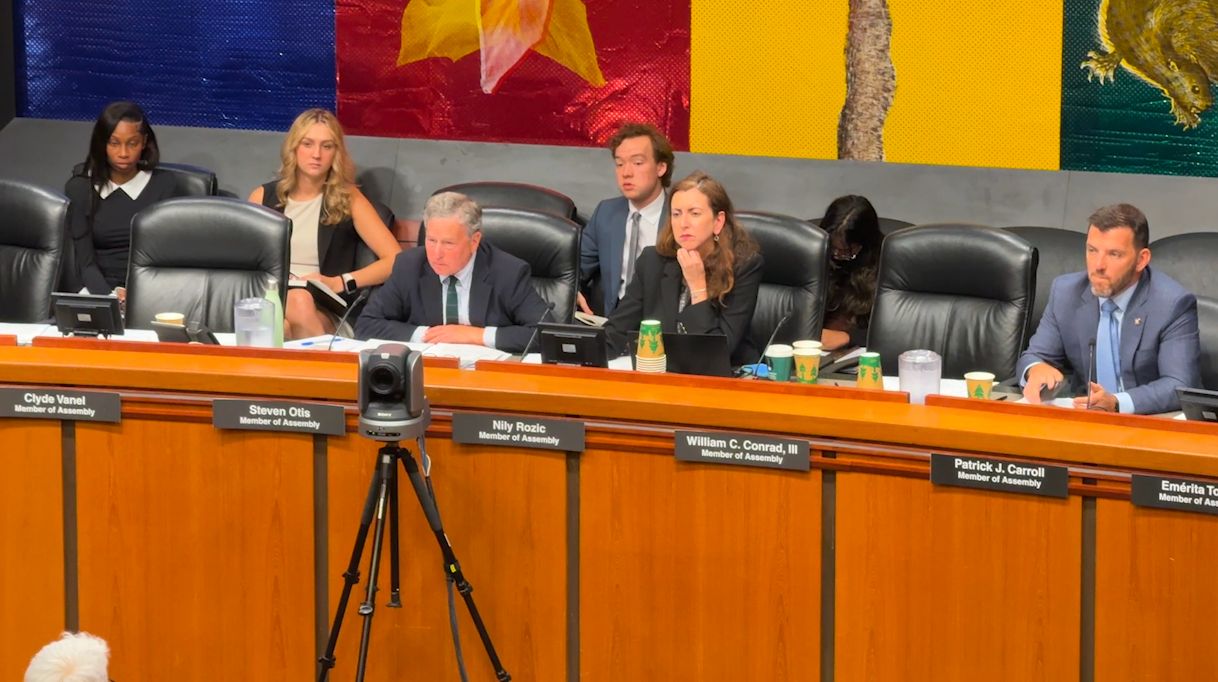State lawmakers say New York’s lack of comprehensive data privacy legislation is going to make managing the unwieldy implications of artificial intelligence and an increasingly personalized online experience more and more challenging the longer New York goes without such regulations.
The state Assembly held a hearing Tuesday in which Chris D’Angelo, New York’s chief deputy attorney general for economic justice, testified that at this point, New York should look to other states and realize they aren’t doing enough to manage how data is used, and ways in which people can better understand their options to opt out.
“The use of our data in ways that we don’t understand leads to hyper personalization,” he said. “Creating divergent worlds that people live in depending on what their own personalized view of things may be.”
D’Angelo said so far, data privacy legislation elsewhere has failed to provide adequate means for managing the experience, communicating how data is being used and offering realistic options for avoiding data tracking and personalization that people will actually understand enough to utilize.
“The natural inclination is to serve you up content that is going to be engaging to you. We have not given consumers up to this point the flexibility to make a determination to determine whether or not they want their data to be used that way,” he said.
One recommendation includes ensuring that individuals are provided with a “blanket” opt-out option, rather than constantly being asked for permission to use data site by site and app by app, creating a situation where users become desensitized and sign away their privacy just to move on from the constant popups.
“When confronted with a popup on one particular website, our natural inclination is going to be ‘get me to the thing I want to see, I’ll click whatever you need me to to get me there,” he said.
Assemblymemebr Nily Rozic carries the New York Privacy Act with state Sen. Kristen Gonzalez and led the hearing with Assemblymember Steven Otis. She told Spectrum News 1 that the state’s piecemeal industry-by-industry approach to handling tech legislation as opposed to a comprehensive bill is stalling New York’s ability to meet the current tech moment, especially when it comes to legislating the threats and pitfalls posed by AI.
“We really can’t deal with AI and that changing world until we have a more foundational premise and framework for data privacy,” she said.
But the business world has concerns, especially small businesses who worry that large entities will be better equipped to handle additional regulations.
“We’re not the same as these large corporations, data powered tools are essential for our success and our growth,” said Dawn Kelly, founder and CEO of The Nourish Spot in Queens.
Kelly testified that if such a bill results in private right of action lawsuits, that will put small businesses at yet another disadvantage.
“We don’t have the time, the energy, or the money or manpower to fight frivolous lawsuits,” she said.
Rozic stressed that she is familiar with those concerns and committees will be consulting with businesses of all types, and weighing their feedback with that of of consumers.
“We don’t want to be in the business of putting people out of business, but we do want to make sure that at the heart of the legislation is the consumer and data privacy,” she said.
Also testifying were various other tech groups and civil rights organizations.

